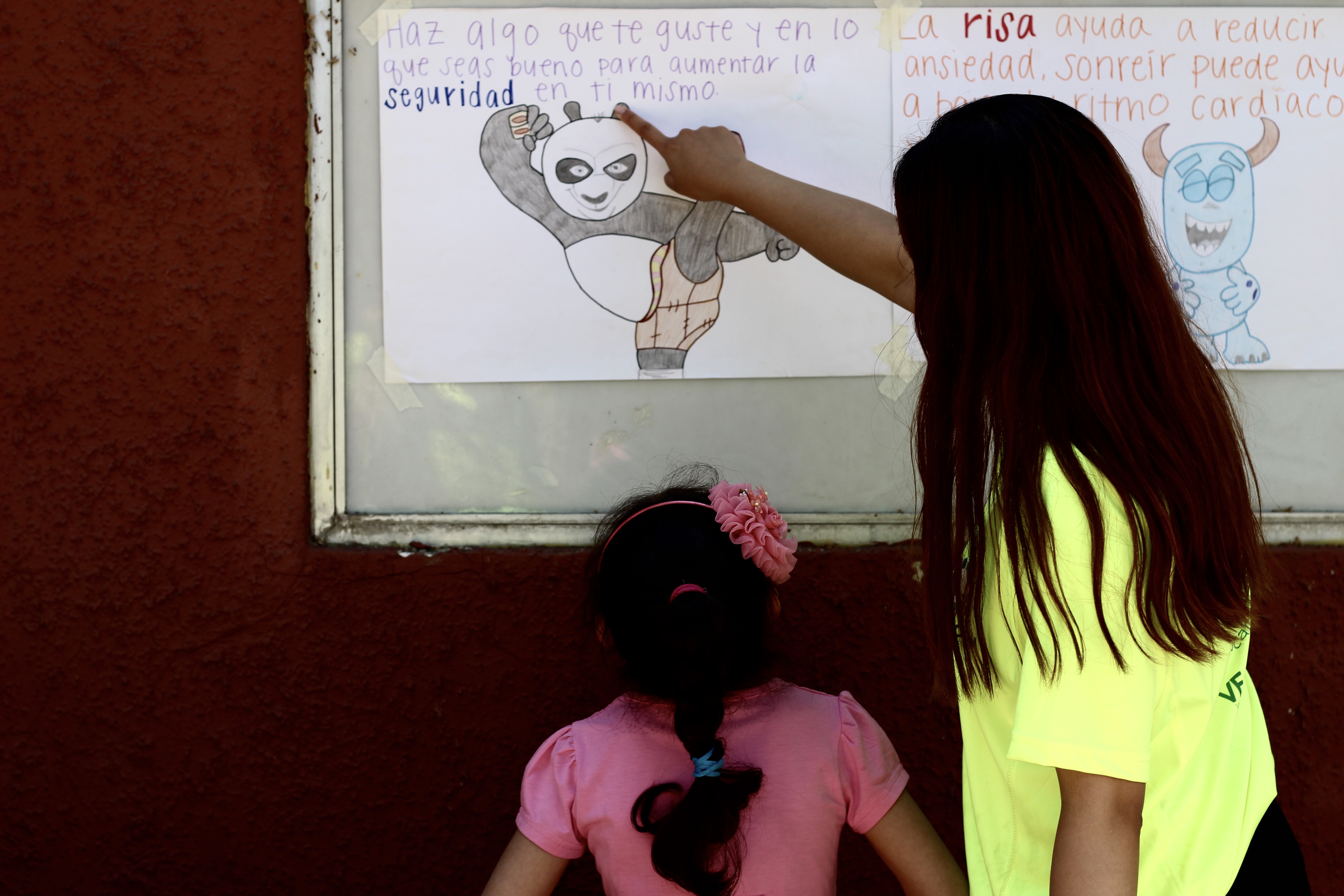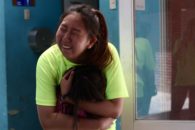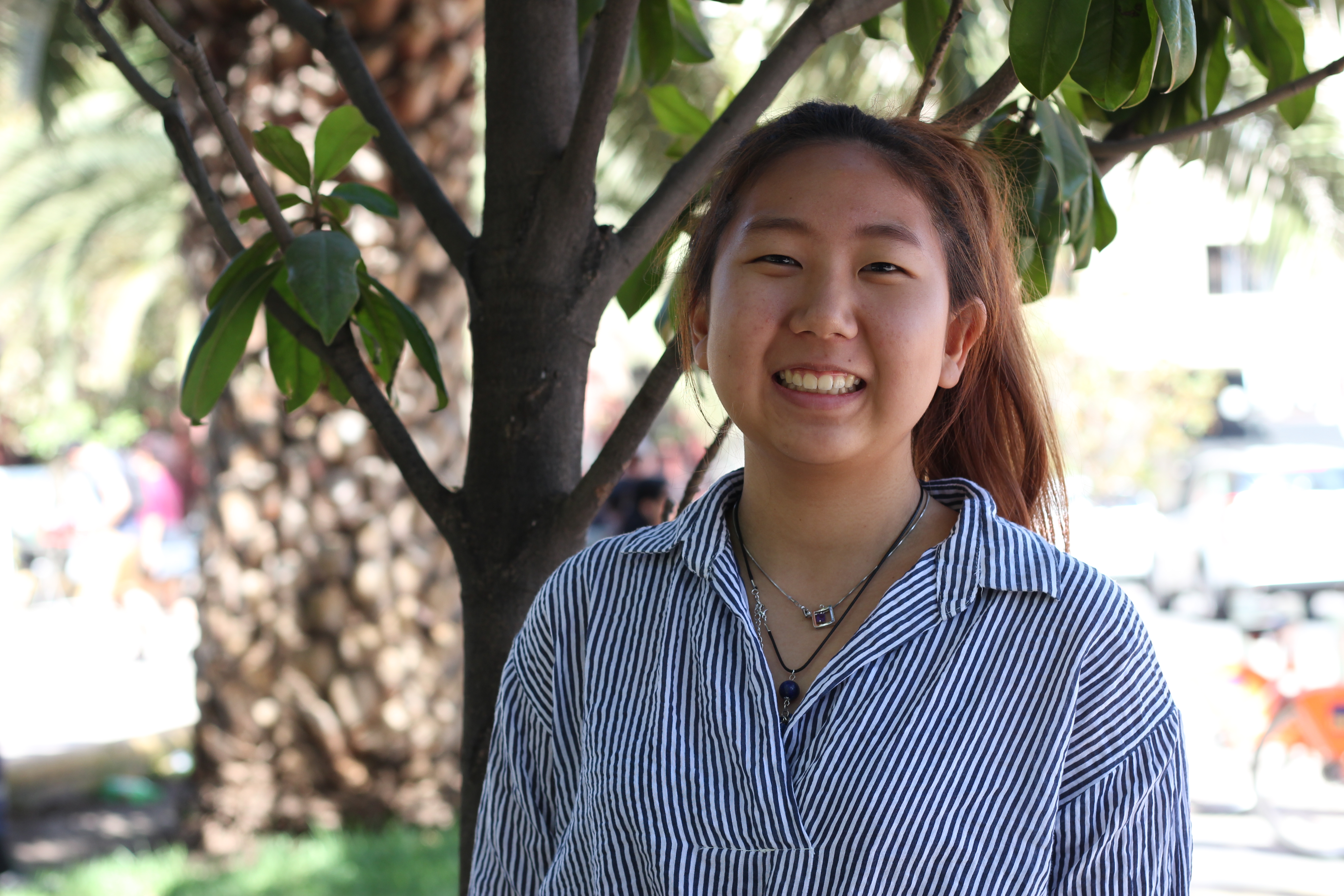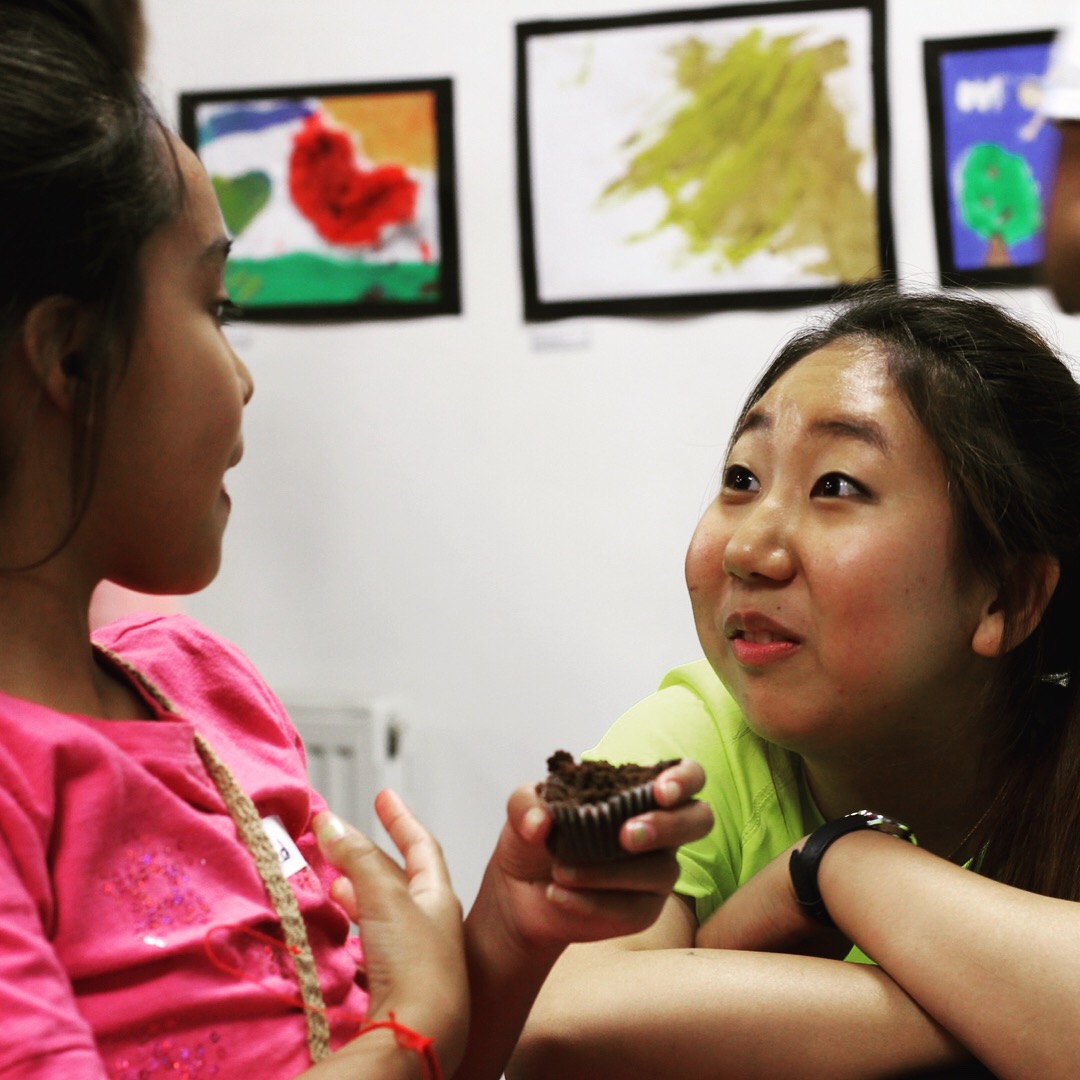“Me Voy” 3): Yu Jeong (Yoyo) Lee: “from the classroom to the field”
18, South Korean, even if super young she is building a strong international background travelling all around the world
Yoyo is one of the international volunteers who joined VE Global on September, after having graduated from college. She is a melting pot of different cultures, as she grew up in a mix of Korean, American and partly African environments.
This odd amalgam has helped Yoyo to become more open to differences and to synthesize what works without conforming to traditions and stereotypes. These characteristics make her a special volunteer, as neglect and abuse are universal issues that need to be addressed by fresh unbiased minds.
Yoyo tells Idealist the major challenges of been a young international volunteer. She wishes her time at VE to be an opportunity not only to help children, but also to better understand the issues of social risk. She is determined to develop a strategy to address these roots in the long-term as she is motivated to become a Human Rights lawyer.
Why did you decide to start volunteering?
After graduating from high school in May, I had many questions about what I want to do moving forward. I had my college acceptances, roommates with whom I was going to live with starting this Fall, and subjects I wanted to study. I’d spent a full year researching internalized sexism in Korea and I couldn’t wait to continue researching as a learning sociologist in college. Afterwards, I would go on to become a human rights lawyer for children or women at risk. However, during a Skype call with my young friend Ariane at the New Destiny Orphanage in Cameroon, I realized I don’t know what it is that these children at social risk face from day to day, and need. Since my time in Cameroon, most of my understanding of social issues has been second handed, from textbooks, surveys, research papers, and activist parades. Ariane taught me four years ago that the value of service lies not in establishing the volunteer-recipient relationship nor in overlooking difficulties to bridge the gap, but to embrace the hardships and differences that need to be dealt with. It took a slap to my cheek by a seven-year-old Ariane back then, and today, this new realization of how limited my experiences have been, jolted me from my incubated surroundings. With my family moving to Chile for my father’s job, I decided to take the year off, to move out of the classroom, into the field, and learn what I hope to one day defend.
Why did you choose VE Global/ Santiago?
VE works with children at residential homes and centers who are from vulnerable areas of Santiago and have been neglected or abused. I hope to help alleviate the hardships faced by these children both physically and psychologically by lending an ear, letting their story flow, and mapping brighter days moving forward. I want to establish relationships with these children that could make up for the neglect and abuse, to reinstall their trust in healthy relationships. I understand that my primary role is to be an aid in their healing process and will work to support, not drive their development. Because my time at VE is temporary, I want to ensure my work at VE- my relationships with the children- becomes an experience to cherish permanently. I believe having someone as a blank page to spill everything out and knowing there is someone who understands is incredibly valuable and comforting. I would like to become such someone who can be of comfort even after my term is over.
Tell me something about your experience as an international volunteer so far.
Coming in as an international volunteer, Asian to be specific, in a country where there aren’t many Asians in general, I was nervous for the cultural/ racial clash that I’ve experienced before in Cameroon that could possibly repeat itself in Chile as well. However, on the contrary, my foreign background has actually been a plus in working with the children despite its downsides. I still have difficulties fully understanding the girls, especially the younger children who speak guagua-chilenismo and treading the appropriate cultural discussions (love/gender equality) but it’s been a really appreciative experience overall with all the children eager to learn how to write Korean and dance K-pop every day.
Do you think you experienced a personal change since you started?
My personal goal in volunteering at VE was to find an answer to what I might be defending one day. Now, I’m reflecting on my entire question because I feel like it would’ve been more appropriate to ask why I want to defend children, why I want to go into psychology in the first place. Working at the residencia pushes me in ways I’ve never experienced before- and a lot of it’s been learning to accept and appreciate myself. The children come to me with questions about their body, puberty, maturity, and sex, all of which I wasn’t sure if I was giving the right responses because I had my own culturally and personally grown insecurities. Especially with questions about sexual identity, I’m still exploring the strengths (upsides) of my own sexuality and I feel like I’m slowly making my way through the yet-teenage identity crisis to make sure I’m setting a right, consistent model for the girls. But then again, most of the time I’m trying to keep up a mature presence, but I’ve really been noticing how immature my impulsive reactions can be and how much more it severs when I’m around children.
Which are the most positive aspects of your experience?
I’d like to say walking into the residencia every day and being greeted by hugs is the most positive aspect of my experience but deeper down, I think knowing that I’m returning every day is probably what makes me the happiest about working at the residencia. Every day, I enter the residencia knowing I’m going to learn something new from the girls and the girls, something new from me. The daily ups and downs are really growing on me and it’s very uplifting to know I’m connected with the girls on the same page, so it’s not just me giving to them but all of us growing together. My experiences are no doubt completely different from the girls’ but nonetheless, it feels nice when you can visualize and physically feel good vibes flowing to and forth.
Which are the major challenges you are facing?
Getting a clear grasp of what my role is as an international, full time, not completely Spanish-fluent, and young volunteer has been a challenge from the first day in the residencia and is still an ongoing quest. Each week, I feel like I’m taking on a new role- or at least an evolving role. Although by title I am a tía, I feel like I’m more of an older sister for most of the girls- someone who they can play with or talk to when they need to. This dynamic makes it a bit more difficult to administer and organize talleres, but at the same time, it’s helped the girls feel more comfortable around me and really helped them open up to me. With the older girls, this also presents a new challenge because I’m four years older than them at max and it’s not as easy for me, or them, to give and receive advice. Some of the stories that they confide in me require a more professional attention and assistance and I don’t know if I’m doing an appropriate job in responding and listening to their worries. I feel like I’m doing all right, but the more I dwell on my role, the more I’m growing worried about leaving. At the time being, I still have about five months left at the residencia so my leaving isn’t a pressing issue, but I don’t know how the girls (and I as well) are going to do when the time comes.
Do you think you are making an impact?
I’m sure I’m leaving an impact. I can see how I’m rubbing off on the children every day I return to the residencia, and every day it’s a new realization. One of the older girls asked me what she needs to do to work at VE and asked if I’d be there to work with her by the time she became eighteen. It actually was a bit sad when she told me this because at the beginning of my service we talked about how she wanted to become a doctor and leave the residencia (and her past) behind. Another day, I was having troubles with the scotch tape and a girl came up and said, “no hay nada que yo no puedo hacer”. I was really surprised because the first few weeks at the residencia, she was really difficult to work with and more hesitant to try new things. I don’t think it was necessarily I who made that impact, but our youngest girl also introduced me to her new stuffed animal that she named Yoyo.
Did you set up any goal for your volunteering?
Prior to starting at the residencia, I had two major goals: first, to improve my Spanish and second, to be a positive and healthy influence for the children, both during and after my time at the residencia. My Spanish is coming along- especially spending hours talking and listening to multiple children every day- and I’m working on my speaking skills to make sure I can reciprocate and express my appreciation during my conversations with the girls. I’ve been reading an article a day to study. For becoming a healthy influence and positive role model, it’s a bit more difficult to evaluate myself but I feel comfortable with where I am and what I’m doing, making sure I show up every day, starting off fresh every day, and creating resilient relationships with each of the girls.
Would you recommend this experience? Why?
I would definitely recommend this experience but with caution. One of my biggest take aways so far is that I need to be stable (strong) enough myself to take care of others. There are days when I really feel helpless because I feel like what I’m doing isn’t enough, or I don’t even know what I’m doing. But I can’t let myself breakdown because I know I’m walking into the residencia and I’m expected to be a model that the children look up to. I’d also be careful with the type of expectations to bring into the experience because it’s often easy to put one’s personal enrichment before the work itself and that would be hard not only for the girls but for the volunteer as well. But nonetheless, I would wholeheartedly recommend this experience and no matter the person and no matter the lesson, it will be a learning experience.





